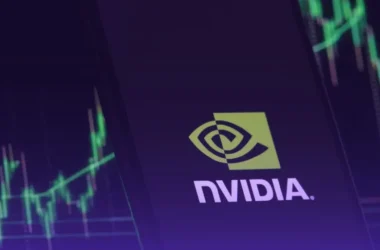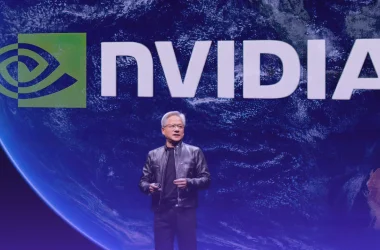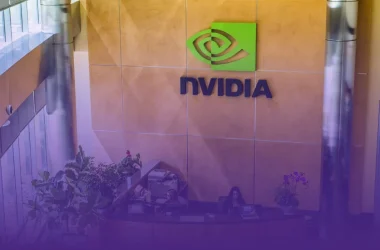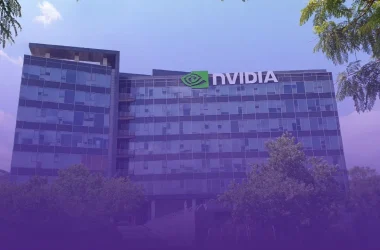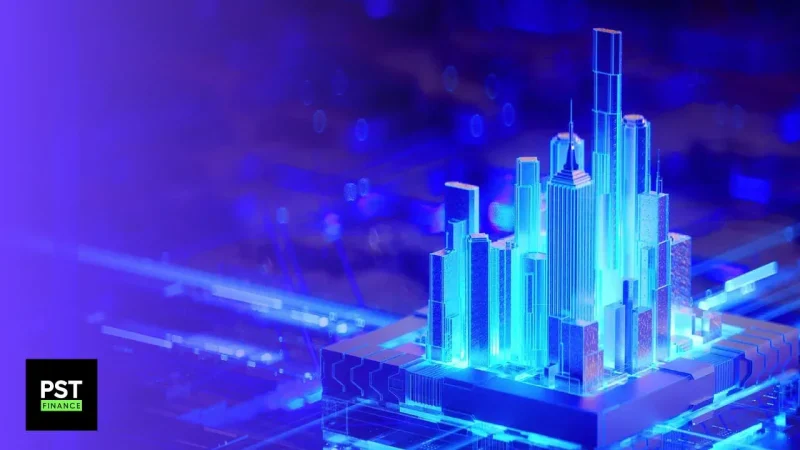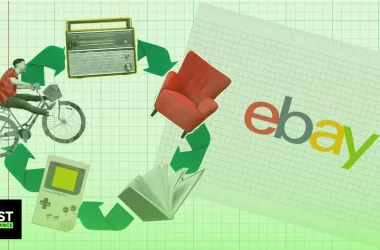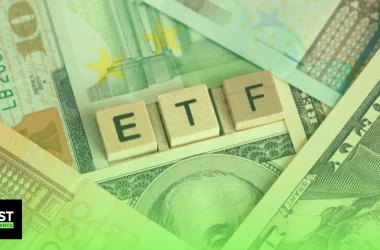Did you know that you could invest in real estate for as little as $1?
This might sound unbelievable, since the average American needs to earn $115,000 a year to afford a home – $40,000 more than the median worker’s salary.
This makes investing in real estate out of reach for most people. But, investing in tokenized real estate solves this problem.
In fact, this investing hidden gem is a game-changer that removes all the barriers to buying, selling, or even investing in real estate, like the traditional costs that come with selling or buying property. Also, the best thing about it is that it’s new, and not many people are talking about it, so you have the opportunity to get in before it becomes the next big thing in real estate.
We’ll cover everything you need to know about tokenized real estate. First, we’ll tell you what it is and how it works, then how you can use it to invest in real estate without paying a huge amount of money upfront, then weigh its pros and cons to help you decide if it’s worth putting your money in.
What is Tokenized Real Estate?
Tokenized real estate is pretty much as the name implies – digital tokens representing real-life real estate properties. This makes buying, selling, and owning properties easier since they become represented on a blockchain, making everything digital.
If you’ve ever bought or sold real estate, you know how tiring the whole process is, from the constant visits to evaluate the property and the long time it takes to find a counterparty and close the transaction to having to pay draining fees to your real estate agent.
These struggles are why tokenized real estate is such a game-changer. It allows you to invest in real estate digitally, providing you with more liquidity and helping you skip over all these tiresome aspects.
The Types of Tokenized Real Estate
There are four types of tokenized real estate, and we’re going to explain each one in detail.
The Fractionalized Type
The first type is the fractionalized type, which uses fungible tokens to divide a property’s ownership. For example, a $10 million mansion can be tokenized into 10 million tokens, each representing a $1 share of the property. Depending on the amount of tokens you own, you own a specific percentage of the property. If you own a million tokens, then you have 1% of the mansion. To make it simple, it works in the same way as owning stocks in a company.
This makes the real estate market accessible to everyone, regardless of income. You could use it to build portfolios of different real estate assets without worrying about things like the property’s location or maintenance costs. This idea already exists, but is not tied to the blockchain like tokenized real estate, instead it is called real estate crowdfunding.
Some might consider tokenized real estate to be similar to real estate investment trusts or REITs, but in fact, there is a major difference between the two, which arguably makes tokenized real estate better.
While REITs provide good liquidity by trading shares on a stock exchange, tokenized shares of property are even more liquid because they are digital assets that don’t necessarily need a broker. You can trade them yourself with anyone, which can also help you save a lot of fees.
But, you are probably wondering how you can be sure that your token is actually tied to the property. After all, it’s not easy to verify that the property exists or that whoever is selling you the fractional ownership actually owns it to begin with.
If you want to verify if a property exists or not, or if the information you see about it online is correct, then you can use platforms like ProspectNow and SmartZip, which work with Ethereum network Chainlink to provide you with accurate data about the real estate properties listed on the blockchain.
If you’re still not convinced, you can check out platforms like USP.IO, which helps you start investing in tokenized real estate with very little money. All USP.IO users have to take a KYC verification to ensure that no bad users get onto the platform easily.
In addition, USP.IO enforces a lockup period of 90 days during which accredited investors aren’t allowed to trade or transfer their tokens. The SEC uses that time to determine whether the tokens comply with federal regulations.
The Simple Type
This type focuses more on property owners who want to get their properties tokenized. It is called the simple type, which basically represents the ownership of a single real estate property as a non-fungible token. This means that owning that token is equal to owning that property, and transferring that token can involve a change in property ownership.
In simple terms, it acts like a deed or the physical ownership contract of your home, but it’s digital, which could help you buy or sell properties faster. In fact, the Indian government recognized this concept in 2018. An example is the state of Andhra Pradesh in India, which launched a project to use blockchain to record and track land ownership records in 2018.
There are a lot of benefits to tokenizing your property. For example, if you’re a property owner, then tokenizing your property can simplify the process of selling it since you could list it on any NFT marketplace, and a buyer would purchase it within minutes just by pressing a few buttons.
Another benefit is that property tokens can hold important data about the property in the blockchain, like past sales or the address. You can take this one step further with dynamic NFTs, which automatically update their data. For example, if the property’s roof gets replaced, that would be updated in a dynamic NFT.
If you’re wondering how dynamic property NFTs do this, then you should know that they’re connected to smart contracts, which provide instructions regarding when and how NFTs should change their data.
If you want to unlock your property’s untapped potential, here’s how to tokenize it.
To tokenize your real estate, you need to follow a structured process that starts with checking legal and regulatory compliance and ends with securing an accurate valuation for your property. After that, you’d need to create a tokenization plan and develop smart contracts in order to issue the tokens linked to your property.
Naturally, there is a downside to consider. The process of tokenizing your property can be lengthy and complex, especially if you’re unfamiliar with digital assets.
But don’t worry. Many platforms, like Tokeny and Vave.io, help you tokenize your property and distribute the tokens.
Tokenized Real Estate Cash Flows
This type doesn’t actually involve tokenizing the property itself but the cash flow it generates. This works by owning a share or rights to the income a property makes, which is often the monthly rent tenants pay. It is a great option if you want income from real estate at a low cost and receive the cash flow automatically every month.
Most platforms that offer tokenized real estate cash flows only offer them to accredited investors who make $200,000 a year. However, one platform, RealT, offers these services to non-accredited investors.
The way RealT works is that it takes 2% of the property’s gross rental income, and the remaining 98% is distributed to holders of the RealT token in the form of USDC, a digital coin pegged to the U.S. dollar.
Tokenized Real Estate Baskets
According to Chainlink, this type is still under development, but the technology needed to make it work is there, so it’s still worth keeping an eye on.
When you have a tokenized real estate basket, it means you have a collection of tokens that represent both properties and the money they generate from rent. This setup is a perfect blend between other tokenized real estate types, and offers you diversification and automated cash inflows.
If you’re unsure about the other types, this would be a good way to get into tokenized real estate, but you’d have to wait for a platform to start offering it.
Pros of Tokenized Real Estate
We already mentioned how some platforms can help you invest in tokenized real estate for as little as $1 and the liquidity and diversification this offers. But, there are more advantages to tokenized real estate than what meets the eye.
One such advantage is transparency. Thanks to the power of blockchain technology, every single transaction and ownership record is etched into the digital ledger, reducing the risk of fraud.
Another advantage is the global accessibility. Tokenized real estate allows you to transcend geographical boundaries, meaning that you can explore and invest in various opportunities in different markets around the world.
The last advantage is extremely important if you’re an investor who wants to save money since the costs associated with trading tokenized real estate are much less than traditional real estate costs.
Cons of Tokenized Real Estate
The first drawback is the regulatory and compliance risk. Since this is a new type of digital assets, then its regulations might constantly change in the future. This means that you need to do their homework about the legal issues related to investing in real estate tokens.
Another thing you should consider is that tokenized real estate is still a fairly new, unexplored concept, which can be both a pro and a con. It’s a pro because it could be developed rapidly and have a lot of new technologies implemented within it, and con because this would make it require extensive research, so you must do your own due diligence.
The Bottom Line
Real-world asset tokenization provides an exciting opportunity for blockchain technology to make markets more efficient, open, and transparent.
Of course, the massive real estate market is no exception. While this idea is considered to be still in its infancy, there’s already a wide range of different assets being tokenized on-chain, so why should real estate be any different?
However, it will likely take a long time before tokenized real estate is implemented at a large scale since many people are still used to the traditional ways of buying and selling real estate. We will just have to wait and see how this concept develops.
Disclaimer
Please visit and read our disclaimer here.

